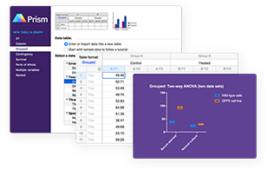Depressed medical students more likely to associate stigma with depression
Medical students with moderate to severe depression more frequently endorsed several depression stigma attitudes than nondepressed students and had a higher rate of suicidal thoughts, according to a study in the September 15 issue of JAMA, a theme issue on medical education.
“Medical students experience depression, burnout, and mental illness at a higher rate than the general population, with mental health deteriorating over the course of medical training. Medical students have a higher risk of suicidal ideation and suicide, higher rates of burnout, and a lower quality of life than age-matched populations,” the authors write. They add that medical students are less likely than the general population to receive appropriate treatment, perhaps because of the stigma associated with depression. “Students may worry that revealing their depression will make them less competitive for residency training positions or compromise their education, and physicians may be reluctant to disclose their diagnosis on licensure and medical staff applications.”
Thomas L. Schwenk, M.D., of the University of Michigan, Ann Arbor, and colleagues conducted a study to assess the prevalence of self-reported depression and suicidal ideation among medical students and to assess the perceptions of depression stigma by both depressed and nondepressed students. In September-November 2009, the researchers surveyed all students enrolled at the University of Michigan Medical School (n = 769). The survey response rate was 65.7 percent (505 of 769).
The authors found that the prevalence of moderate to severe depression was 14.3 percent. A significantly greater percentage of women than men scored in the moderate to severe range (18.0 percent vs. 9.0 percent). Twenty-two students (4.4 percent) reported suicidal ideation at some point during medical school, with the proportion of moderate to severely depressed participants varying significantly by level of suicidal ideation. First- and second-year students less frequently reported suicidal ideation than did third- and fourth-year students (1.4 percent vs. 7.9 percent).
Stigma perceptions varied by depression score. “Students with higher depression scores felt more strongly than did those with no to minimal depression that telling a counselor would be risky and that asking for help would mean the student’s coping skills were inadequate. Those with moderate to severe depression scores also agreed more strongly that, if depressed, others would find them unable to handle medical school responsibilities (83.1 percent vs. 55.1). Medical students with moderate to severe depression scores more frequently reported feeling that, if depressed, fellow medical students would respect their opinions less than did those with no to minimal depression (56.0 percent vs. 23.7 percent),” the authors write.
Also, men agreed more commonly than women that depressed students could endanger patients (36.3 percent vs. 20.1 percent). First- and second-year students more frequently agreed than third- and fourth-year students that seeking help for depression would make them feel less intelligent (34.1 percent vs. 22.9 percent). Students with high depression scores would also be less likely to seek treatment if depressed.
“These results suggest that new approaches may be needed to reduce the stigma of depression and to enhance its prevention, detection, and treatment. The characteristics of medical education emphasizing professional competence and outstanding performance might be explored as reinforcing, rather than potentially sabotaging, factors in the creation of a culture that promotes professional mental health. The effective care of mental illness, the maintenance of mental health and effective emotional function, and the care of professional colleagues with mental illness could be taught as part of the ethical and professional responsibilities of the outstanding physician and become a critical component of the teaching, role modeling, and professional guidance that medical students receive as part of their curriculum in professionalism,” the authors write.
(JAMA. 2010;304[11]:1181-1190. Available pre-embargo to the media at www.jamamedia.org)
Editor’s Note: Please see the article for additional information, including other authors, author contributions and affiliations, financial disclosures, funding and support, etc.
Editorial: Understanding Depression and Distress Among Medical Students
Laura Weiss Roberts, M.D., M.A., of Stanford University, Stanford, Calif., writes in an accompanying editorial that the two reports in this issue of JAMA on burnout and depression, when taken together, reveal encouraging findings about the formative experiences of medical school.
“The majority of medical students in the study by Dyrbye et al, whether in their first or last year of school, expressed altruistic attitudes regarding the care of disadvantaged patients and by their fourth year, students more clearly recognized ethical practices in interacting with industry. In the study by Schwenk et al, third- and fourth-year students expressed less stigmatized views of depression in peers. For example, advanced medical students in this study were less likely to see an ill student as potentially dangerous to patients and as depressed by choice. These data suggest that the iterative [repetitive] experiences of medical training may inspire more accurate and empathic understanding of the illness experience, whether in a patient or a colleague.”




